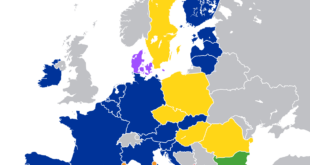- The Lok Sabha recently passed a Bill that defines that the word “government” in Delhi means the Lieutenant-Governor (L-G) and makes it mandatory for the elected government in the national capital territory to take the opinion of the L-G before any executive action.
- Amid strong protests from Opposition parties, including the Congress and the AamAadmi Party (AAP), the Bill was passed by a voice vote.
‘SUPER CHIEF MINISTER’:
- Union Minister of State for Home said the Government of National Capital Territory of Delhi (Amendment) Bill (GNCTD), 2021, was necessary to remove ambiguities and make governance in Delhi more accountable and efficient.
- Opposition members accused the government of ‘usurping’ the power of the elected government in the national capital and trying to rule Delhi through the Lieutenant-Governor by making his office a ‘super Chief Minister’.
- The lone AAP Member of Parliament accused the BJP of being a ‘poor loser’ and alleged that the Centre had become a specialist in taking away rights of the States.
- Opposition members also wondered why Assembly elections in Delhi should be held if all the powers were to be given to the L-G.
- They also asked if the Centre plans to turn the national capital into a Union Territory like Jammu and Kashmir where there is an Assembly but is non-functional.
- Another opposition member said the legislation was ‘unconstitutional and mala fide’ that sought to take away the representative character of Delhi’s government.
239AA:
- Article 239AA of the Constitution of India granted Special Status to Delhi among Union Territories (UTs) in the year 1991 through 69th constitutional amendment by the Parliament, thereby providing Legislative Assembly and a Council of Ministers responsible to such Assembly with appropriate powers to deal with matters of concerns to common man. That’s when Delhi was named as National Capital Region (NCT) of Delhi.
- As per Article 239AA – Public Order, Police & Land in NCT of Delhi fall within the domain and control of Central Government which shall have the power to make laws on these matters.
- For remaining matters of State List or Concurrent List, in so far as any such matter is applicable to UTs, the Legislative Assembly shall have power to make laws for NCT of Delhi.
- Further, for Offences against laws, Jurisdiction & powers of Courts (except SC) and Fees (except court fees) so far as they relate to Public Order, Police & Land in NCT of Delhi; Central Government would have power to make laws.
- Further, the Council of Ministers (i.e. CM and his Ministers) are elected to aid and advise the LG in the exercise of his functions in relation to matters with respect to which the Legislative assembly has power to make law.
- Therefore, in respect of Public Order, Police & Land – LG would not need aid and advise from the Council of Ministers. For other matters enumerated in the State List, this arrangement would work.
- In a verdict on the power tussle between the Delhi government and the Centre, the Supreme Court has said that Lieutenant Governor does not have independent decision making powers, and is bound to act on the aid and advice of the Council of Ministers.
- The Court said that all decisions of the Council of Ministers, who are elected representatives of the people of Delhi, must be communicated to the LG but that does not mean his concurrence is required.
- There is no room for absolutism and there is no room for anarchism also,” the court ruled.
- The top court further said the LG should not act in a mechanical manner and stall the decisions of the Council of Ministers.
SOURCE: THE HINDU,MINT
 Chinmaya IAS Academy – Current Affairs Chinmaya IAS Academy – Current Affairs
Chinmaya IAS Academy – Current Affairs Chinmaya IAS Academy – Current Affairs



